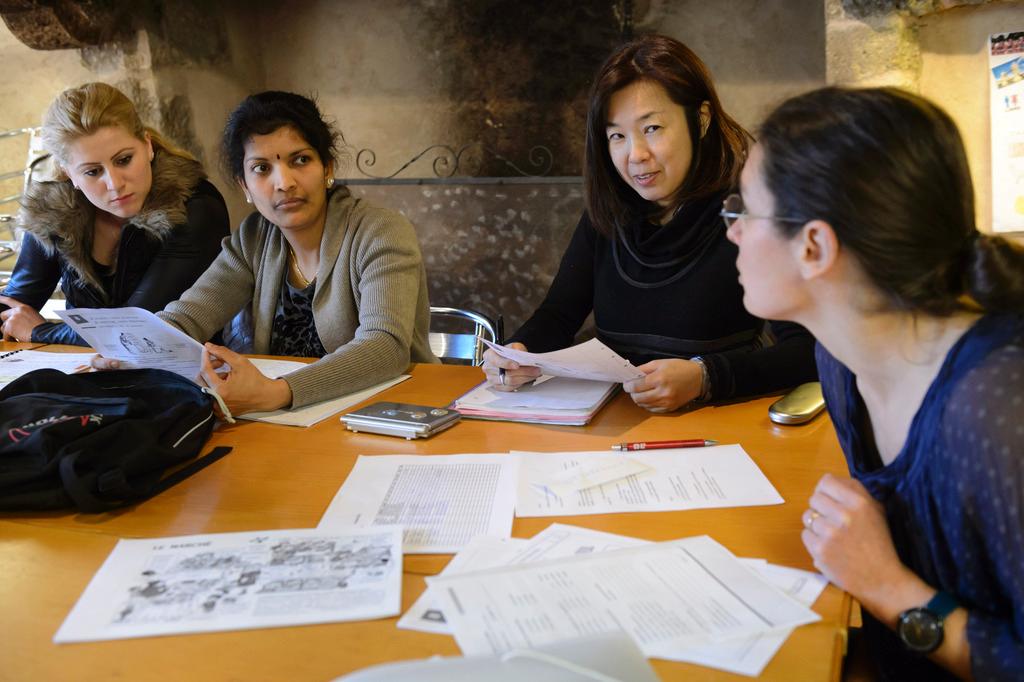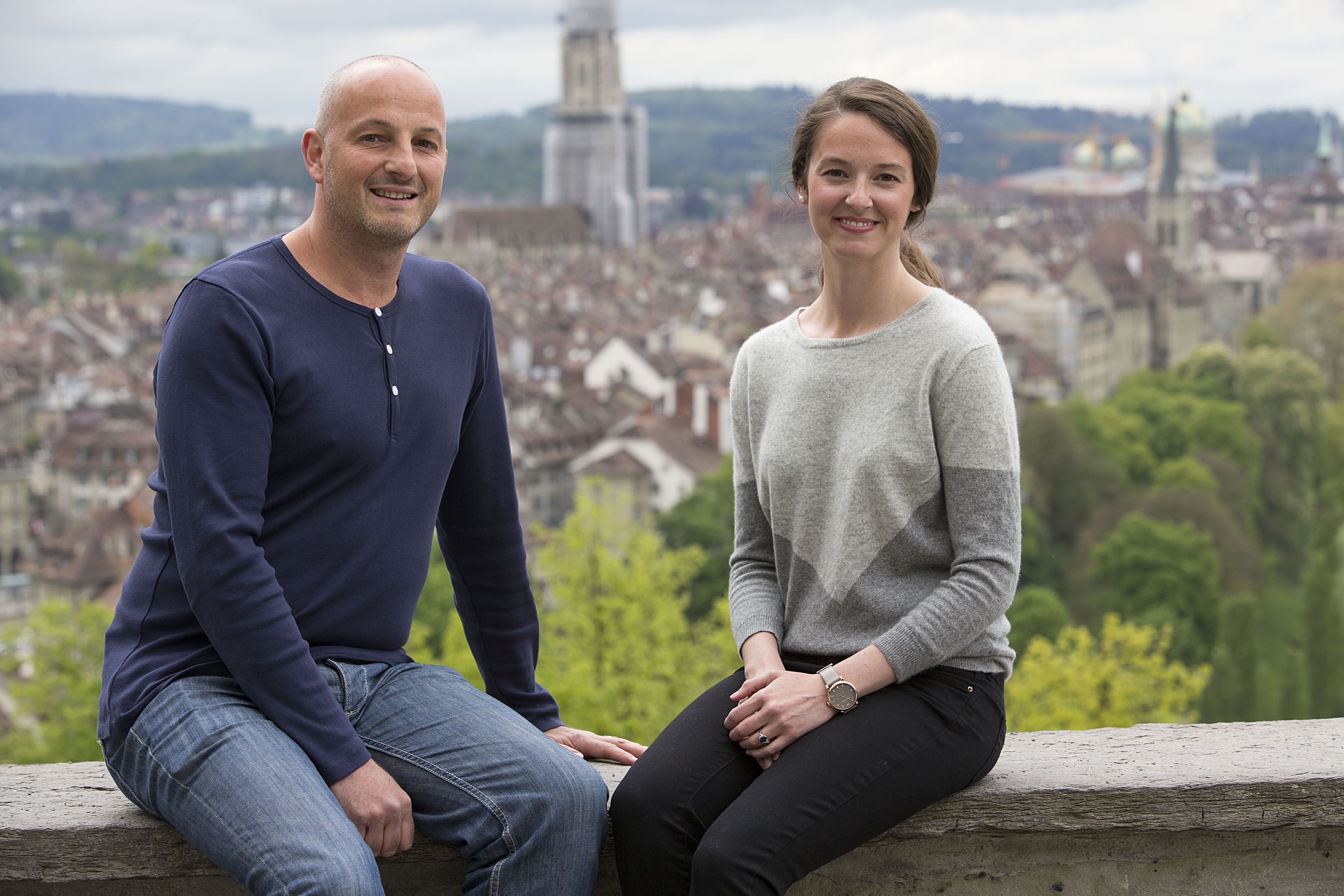Indian trailing spouses – in love and out of work

They are educated, qualified and experienced. But many trailing spouses from India find it difficult embarking on a new work life in Switzerland.
Sharanya’s day begins with preparing breakfast and lunch for her husband. Once he’s left for work, she divides the rest of her morning between keeping her three-year-old engaged with activities and other household chores like laundry and cleaning. After lunch, she skypes with her parents and in-laws, before heading for a stroll with her daughter to the park.
“I browse, read, paint and hunt for jobs online when she naps. But this has pretty much been my routine for three years now. I like this role of being a wife and mother, but I miss my work life,” she says. Sharanya holds a Master’s degree in organic chemistry. She worked for four years as a research associate in India for AstraZenenca, a multinational pharmaceutical company.
“Life in India as a working woman was very different. I was busy with lab work, research and report writing and meetings the whole day.”
Sharanya gave up her job in India to move to Switzerland with her husband soon after they got married. With her academic qualification and work experience she was positive she’d find a job. “I applied for many positions in pharmaceutical and life sciences companies. I received very few replies. Several positions required fluency in written and spoken German and I was turned down because of the lack of the same.” She has now begun learning the language.
Spouse support
Currently there are nearly 12,000 Indians living in Switzerland, ranging from the unemployed to those with permanent C contracts. Those relocating to Switzerland for limited contracts of a few months often leave their spouses behind in India. For those coming for longer, there is a significant number of trailing spouses, and like Sharanya, many are women.
Statistics show that of the 950 Indians employed in Switzerland with permanent work permits in 2013 more than 800 are men. Women account for 900 of the 1,500 unemployed Indians in Switzerland.
The setback for trailing spouses is the spouse support programmes offered by companies that employ Indians in Switzerland. Or rather, the lack of it.
“Most Indian companies do not have a spouse support programme as it is not part of their HR policy,” says Sabine Binelli, business manager for German-speaking Switzerland at the Spouse Career Centre. “Asian companies in general tend not to invest that much in people. So there is not a big [demand for] interesting relocation packages; people come to work to Switzerland anyway.”
Spouse support programmes are more often offered to employees who come to work in Switzerland with very senior work profiles and positions. Indians say that some perks are offered to others when relocating to a new country. A relocation package can include facilities like covering initial or full-term accommodation, learning the language for the couple and schooling for children.
When Neera Mallick moved with her husband to Switzerland nearly 20 years ago, she too found herself in the trailing spouse dilemma. Her husband then worked for ABB, a power and automation technologies company with its headquarters in Zurich.
Besides her Master’s degree in home science, Neera had also specialised in marketing management, textile and fashion designing. “None of this helped me then. Also, since the textiles industry in this country is not as prolific as in India and I lacked experience in this field, I found it difficult to find a job,” she says.

So in 1999, Neera began teaching English to adults as a part time job. “I taught English as a second language at language institutes and business English to employees at firms.” The flexibility of a part-time job helped Neera manage her two children. “But with kids so young I could not manage a formal certification in teaching until 2011. But by then I felt I was stagnating.”
Experimenting with IT
It was around this time that Neera heard of the start-up IT for non IT, run by Rajeev Sinha, an Indian living in Switzerland. Sinha comes from a biology background and began his career in financial services before making his move into the IT sector during the Y2K boom.
“This initiative is based on my own experience of coming from non-technical background and successfully working in IT industry for more than 20 years,” he said. During his career he had met successful IT professionals who come from a non-IT background. Sinha identified areas that do not require technical skills like business analysis and project management.
He organised a workshop ‘IT for non IT’ in 2012 in Zurich inviting people from different educational and work backgrounds. “Most of the participants were highly qualified women,” he said.
Participants were given an overview of IT, project management, software development and business analysis and were encouraged to get an ISTQB certification – a globally accepted certification for a basic framework and understanding of software testing. Many Indian expat spouses formed small self-study groups to prepare for the certificate. Neera, like others, also participated in these study sessions and successfully cleared the exam.
But as she towed her new career path, Neera found her true calling. “I realised that I would miss my teaching profession if I left it. Moreover, I also felt that I was a good teacher and it would be more worthwhile to invest time and money to hone my skills rather than in IT.” Neera now holds a diploma in teaching the English to adults.
Among others who managed the ISTQB certification was Panguluri Koundinya, an Indian who’s been in the restaurant business in Switzerland for ten years. “It was interesting to know how to approach the IT industry as a fresher. But beyond that unless you have contacts and some experience no one without prior IT experience is able to find a job,” he says.
Increasing the odds
Of the 950 Indian permanent residents in Switzerland, more than half work as management, technical, education professionals and service consultants and the rest are employed in trade, sales, marketing, hospitality and other sectors.
Binelli is currently working with four Indians at the Spouse Career Centre. One of them is Vanita Verma. A chartered accountant; she quit her job in India to move to Switzerland with her husband earlier this year. He works for Sapient – a technology and information services major with global operations. Vanita is now intensively searching for a job and learning German.
“I realised learning the language would definitely increase my chances of getting a job here.” Vanita is redoing her CV according to European standards and is being guided on how to approach the finance and accounting jobs here both online and offline.
A straw poll by swissinfo.ch found many Indian trailing spouses keep busy with hobbies and NGO activities. While it’s a happy life settling in a new country and adjusting to a new culture, it is also unsatisfying to have a fantastic CV which ends up being just another document saved on their computer.

In compliance with the JTI standards
More: SWI swissinfo.ch certified by the Journalism Trust Initiative











You can find an overview of ongoing debates with our journalists here . Please join us!
If you want to start a conversation about a topic raised in this article or want to report factual errors, email us at english@swissinfo.ch.